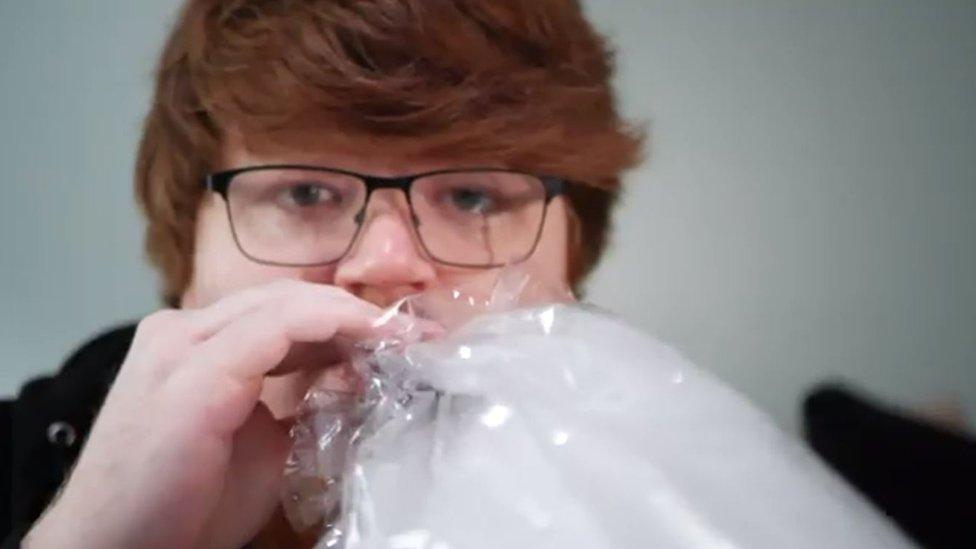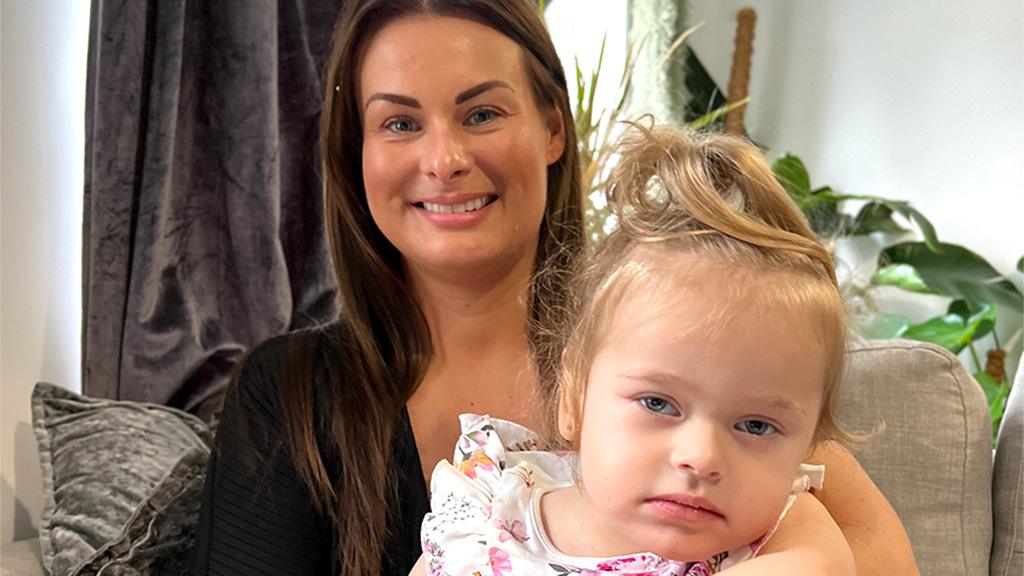Man with Tourette's calls on NHS to increase cannabis prescriptions
- Published
Medicinal cannabis user Conor Ryder said the drug helps alleviate his Tourette's
A man with Tourette's who spends thousands on medicinal cannabis has called on the government to make the drug more readily available on the NHS.
Conor Ryder, from Dorset, gets his prescriptions from a private clinic and said it was the only drug that controlled his severe tics.
But cannabis has been prescribed fewer than five times across the NHS since it was legalised for medical use in 2018.
The government said safety needed to be proven before a wider rollout.
The limited number of NHS prescriptions means Mr Ryder is currently using £300 of his savings every month to pay for cannabis.
"I spoke to my doctor and he said that he… didn't want to refer me, so I went and referred myself off. I went and looked at the clinics," he said.
And Mr Ryder is not alone - private cannabis clinics in the UK have become big business since becoming legal, with figures showing they have dispensed more than 140,000 prescriptions over the past five years.
Cannabis farmer Euan Keenan said he hoped to be able to develop strains that can help with specific conditions
Numbers like these are no surprise to cannabis farmer Euan Keenan, who already supplies the drug for medical use to countries across Europe after previously growing raspberries on his land.
He runs Gro Vida in the south of Portugal, which is expected to produce two tonnes of medical cannabis this year. In five years that is predicted to rise to 20 tonnes.
"We're producing something that is going to go to people who are medically ill so we must make sure that we grow very uniform crops, very consistent crops and very safe crops," he said.
He said he believed the industry was only getting bigger and outlined his vision for where he thinks it will be in a decade's time.
"You'll be able to stand here and I'll be able to say that this row is a strain for bowel cancer, that row is for a strain for epilepsy - but we've got a lot of work to do as an industry to get to that point. "
Mr Keenan said demand for medicinal cannabis in Europe is rising sharply and the private sector has boomed.

Cannabis: Prescription Pot Luck?
Five years after medical cannabis was legalised, why is it so hard to get a prescription?

And back in Dorset, Mr Ryder said it was easy to see why the industry was thriving as the drug is now something he "can't live without".
He was diagnosed with Tourette's at 13 years old and experiences a range of audible tics including making animal noises and banging sounds, as well as physical tics like winking, blinking and rolling his shoulder.
He said the tics cause him a lot of pain and he is currently unable to work, but taking cannabis via a medicinal vaporiser helps him manage his symptoms.
Mr Ryder said: "It's something I dreamed of as a kid, taking a small pill and it would just disappear, and now I have it basically.
"I'm hoping that soon I'll be able to work and maybe be able to manage it, because that's the only way if it doesn't become available on the NHS.
"Every medication that they've been able to give me, they've made me into basically a zombie. Cannabis is the only thing that controls the tics."

Mr Ryder takes cannabis every day via a medicinal vaporiser
Legalisation of whole-cannabis medicine was hailed as a breakthrough for patients - giving either NHS or private specialist doctors the option to prescribe it if they believed their patients would benefit.
Medical whole-cannabis uses the entire cannabis plant - which includes the compound THC, the part which can make people feel high.
But campaigners have said patients are being turned away because doctors often do not know enough about the medicine, which is not on NHS trusts' approved lists.
And some medics who do have specialist knowledge have said there is insufficient evidence of the drug's safety and benefits to support prescribing.
The Department of Health and Social Care said cannabis-based medicines could be funded by the NHS where there was "clear evidence of their quality, safety and effectiveness".
It added: "It is important to carefully review evidence on unlicensed cannabis-based treatments to ensure they are proved safe and effective before they can be considered for roll-out on the NHS more widely."
An NHS spokesperson said: "While there is limited evidence on the safety of these unlicensed products, we continue to encourage manufacturers of these products to engage with the UK medicines regulator, which would provide doctors with the confidence to use the products in the same way they use other licensed medicines."

Follow BBC South on Facebook, external, Twitter, external, or Instagram, external. Send your story ideas to south.newsonline@bbc.co.uk, external.
Related topics
- Published13 September 2023
